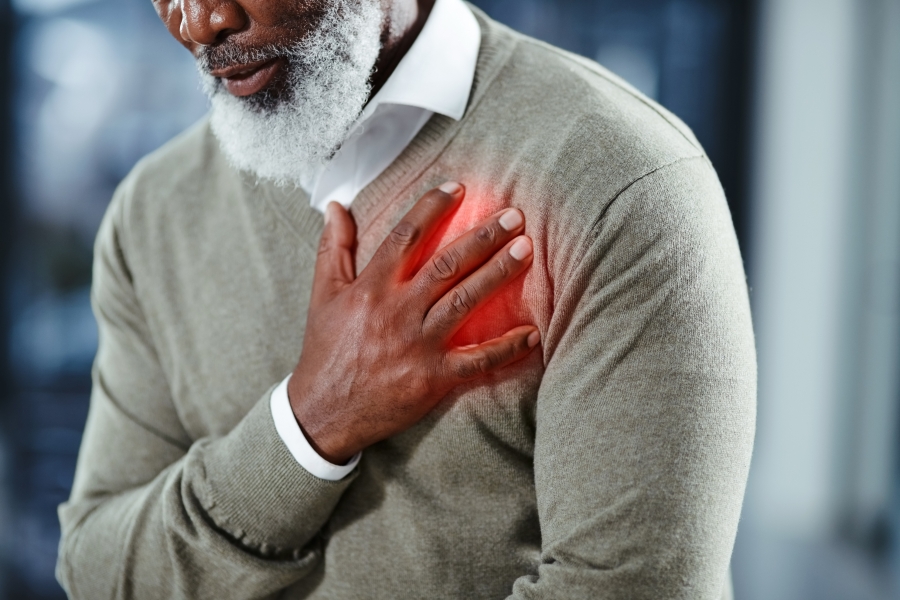High temperatures and humidity may make you feel sweaty, clammy and downright uncomfortable. For most people, this is just a minor annoyance for enjoying outdoor activities when the weather is warm. But if you have a heart condition, it may be harder for you to handle the heat or to cool down when temperatures rise.
If you can’t keep your body cool, it increases your risk for heat-related illnesses such as heat exhaustion or heat stroke. Although anyone can experience these serious health issues, people with heart disease are at greater risk. That's because your heart plays a big role in helping your body keep cool.
When temperatures rise, your heart has to work harder. If your heart isn’t functioning optimally, it puts a strain on your cardiovascular system and makes it harder to stay cool.
Here are answers to common questions about the connection between your heart and your body’s ability to handle hot weather, as well what to do if you have signs of heat exhaustion or heat stroke:
Why is it harder for your body to cool down if you have heart disease?
When it’s hot out, your heart may need to circulate 2–4 times as much blood a minute as it does on a cool day. People with weakened hearts may not respond to the heat as well as people with healthy hearts, and may have a harder time keeping cool. Narrowed arteries can limit blood flow to the skin, and a damaged heart may not pump enough blood to effectively transfer heat from your body.
Can heart medications affect how your body responds to the heat?
Medications such as beta blockers, ace receptor inhibitors, calcium channel blockers and diuretics may make your body more sensitive to heat. Some lower your hydration level or slow your heart rate, which reduces how quickly your heart can circulate blood.
If you take these medications, have a heart condition, are overweight or are over age 50, you may need to take special precautions when temperatures soar.
If you feel dizzy when it’s hot, is it caused by your heart?
Your heart has to increase the amount of blood flowing to your skin when it’s hot to keep your body cooler. This may reduce blood flow to the brain. You also lose sodium and potassium in addition to water when you sweat. This combination may lower your blood pressure quickly, which can cause dizziness.
If you feel dizzy or faint, rest in a cool place with your legs up and drink non-alcoholic and non-caffeinated beverages like water or fruit juice.
What are the signs of heat exhaustion?
People with heart disease are more at risk for heat exhaustion. Signs of heat exhaustion include:
- Heavy sweating
- Cold and clammy skin
- Dizziness
- Fast but weak pulse
- Weakness
- Headaches
- Muscle cramps
- Nausea
- Vomiting
- Dark urine
If you notice any of these symptoms, stop what you’re doing and move to a cooler place and rest. Drink water or other non-caffeinated fluids. Use cool compresses to cool down your body or take a cool shower or bath.
To talk with a Temple cardiologist about how to manage your heart condition during the heat, request an appointment or call 800-TEMPLE-MED (800-836-7536) today.
What are the signs of heat stroke?
Heat stroke is a medical emergency. Call 911 if you have any of these symptoms:
- High body temp (103 degrees Fahrenheit or higher)
- Hot red skin
- Fast strong pulse
- Dizziness
- Nausea
- Confusion
- Headache
- Possible loss of consciousness


